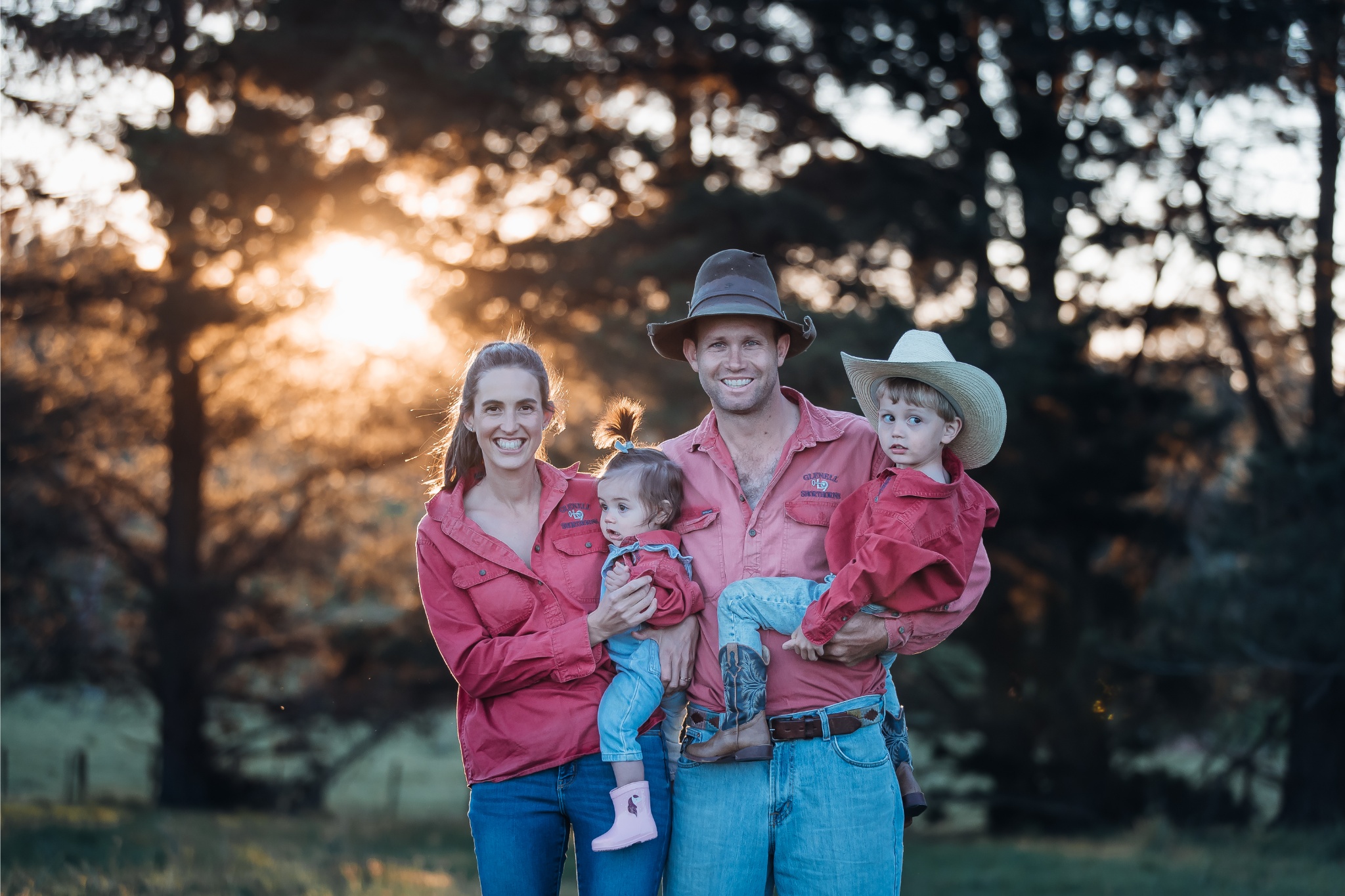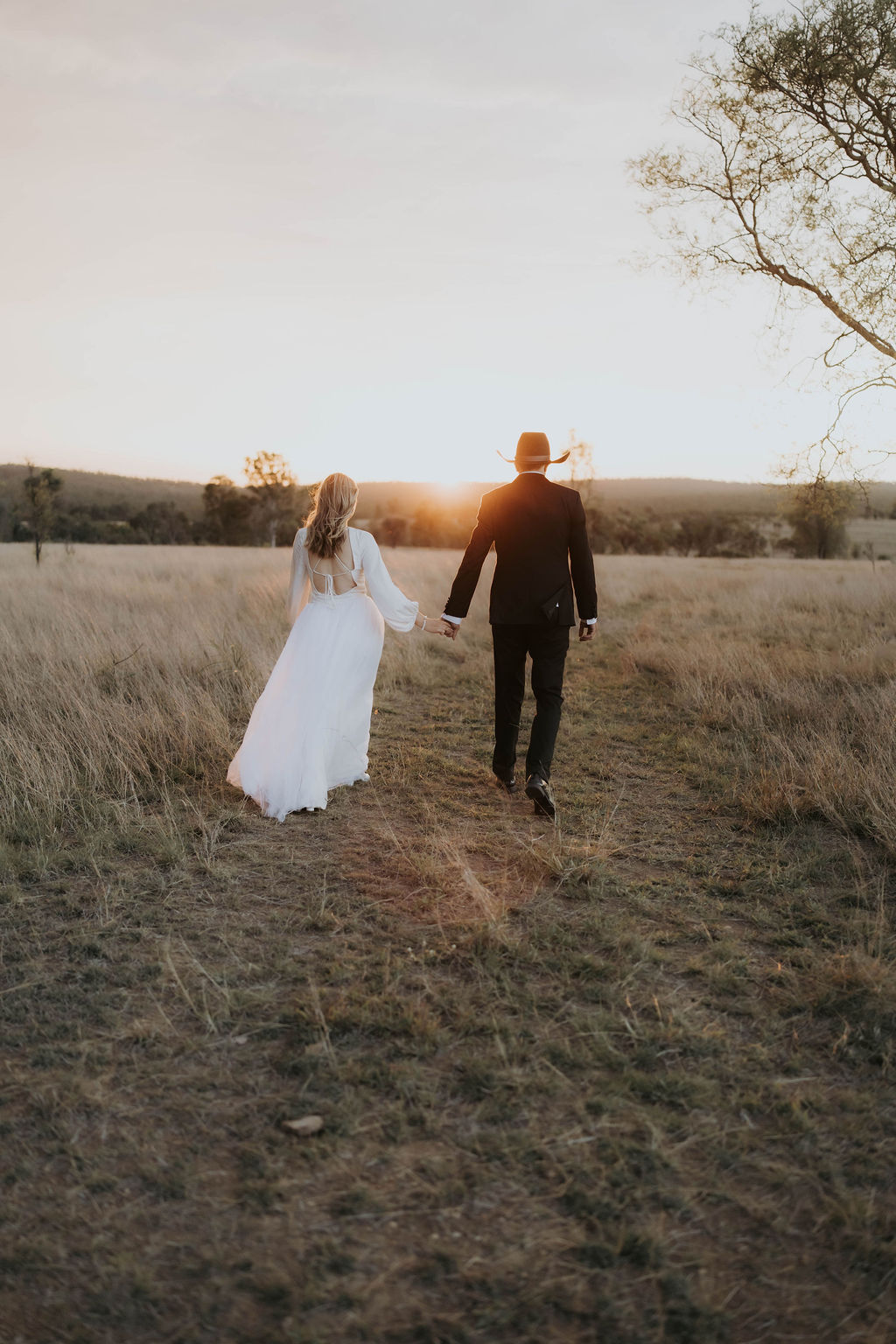“I think one of the learning curves we had going through IVF was that you’re not guaranteed a baby at the end."
PHOTOGRAPHY STEPHANIE COOMBES
Sign up to our mailing list for the best stories delivered to your inbox.
Struggling with infertility while living remotely isn’t for the faint-hearted. Raine Holcombe is one who has met the challenge.
WORDS EMILY HERBERT PHOTOGRAPHY STEPHANIE COOMBES
For couples going through in vitro fertilisation (IVF), the strain can be tangible. The stress of the cost, the quiet despair, the consuming thoughts, the distance yawning between partners as they struggle to conceive. Every scroll on social media revealing other babies being born, someone else’s pregnancy announced.
Add isolation and the tyranny of distance and, for many, it’s the perfect storm. The cost of travel and accommodation in the big smoke, time away from home and work, juggling logistics and schedules with heartbreak and hope.
Raine Holcombe grew up on a crocodile farm in the Northern Territory and lives near Timber Creek, nearly 300 kilometres west of Katherine. She and her husband Potter own and operate a contract mustering company, Farrcombe Contracting, and spent four years going through IVF before a successful result.
“I think one of the learning curves we had going through IVF was that you’re not guaranteed a baby at the end. When we first started we just thought, ‘Oh yeah, so we have to do IVF, that doesn’t matter, it just means it’ll take a little longer’,” the 34-year-old says. “We didn’t really comprehend that perhaps we wouldn’t bring a baby home. That kind of hit us a couple of years later. You don’t know where to go or what to do or how to give up because it’s the one thing you want so badly. I think the best advice at that point is trust your instincts and seek a second opinion if you think your doctor isn’t making any progress.”
Raine’s case is unique — the couple has a rare genetic condition that was undiagnosed for years. Both Raine and Potter carry the same DQ Alpha gene, which causes an embryo to self-abort — so there was just a two per cent chance of falling pregnant, even with IVF. Finding a new specialist nearly 4500 kilometres away, in Melbourne, proved the answer to their problem and they welcomed their daughter Hallie in November 2020. The light is even brighter at the end of the tunnel, with Raine expecting their second child at the time of writing. The beef producer uses her Instagram platform — @barren_old_cow — to help educate and empower others, encourage conversation and simply offer a listening ear.
“I openly recommend to speak to a psychologist if you can, because it does take a huge toll on your relationship, your feelings of self-worth and financial stress,” she says. “We spent up to $150,000 before we got Hallie, so that stress alone is enough to get on each other’s nerves, as well as the resentment around whose fault it might be, or you might be on different wavelengths about how far you’re willing to go. You need to keep talking to each other.”
Dr Nicky Purser — a fertility doctor based between Darwin and Alice Springs — understands the extra challenges. “Rural patients have a much greater restriction on their time and availability than patients living in a city,” she says to me over our Zoom call. “If there are only a small number of people on the property, they might need to wait until it’s their turn to take leave, or for the mustering or harvesting to be done, or — specifically in the Northern Territory — wait until the river goes down so they can bring a car into town.”
The eggs are combined with sperm in a lab’s culture dish where — if all goes well — an embryo forms that is inserted into a woman’s uterus, where it will hopefully take and grow. It’s invasive, physically demanding and expensive, with each IVF cycle costing up to $6000 out of pocket, depending on the treatment.
“The number of cycles varies enormously, usually from one to six cycles,” Dr Purser says. “There are many causes of infertility: age, obesity, endometriosis, polycystic ovary syndrome and male causes like poor sperm quality. About 25 per cent of patients with fertility problems have unexplained infertility: their tests are normal, but they still can’t conceive. It’s very difficult and can be very hard for loved ones watching, to know what to say and how to help.”
The success rate of IVF is mainly driven by the woman’s age, with a 30-year-old having a 45 to 50 per cent chance of pregnancy every time an embryo is transferred, which drops to around 25 per cent by the age of 40.
Being in a same-sex relationship meant IVF was the obvious choice for rural midwife, Rebecca Jones*. She and her fiancée, Margot*, both live and work on Margot’s family farm in regional New South Wales, moving back to the bush from Sydney after COVID-19 hit in 2020. After two failed Intrauterine Insemination (IUI) cycles and three IVF rounds, the couple is now undergoing the necessary ultrasounds and blood tests in the nearest regional town before making the 10-hour round trip to the city every month for appointments.
“We didn’t really comprehend that perhaps we wouldn’t bring a baby home. That kind of hit us a couple of years later.”
“I don’t know how women work and do this, let alone remotely. I’m probably lucky in the sense that I work shift work but so far, including travel, we’ve spent around $50,000. I track my period, know roughly when my cycle starts and know six days later I need an ultrasound and again on days eight and 10 and then day 12,” the 31-year-old says.
“I’m in my early thirties, so everyone around me is having a baby. It’s been really tough, but I’m hopeful. It’s hard. I have a really good friend who also had IVF and she did many more than three cycles, but she had a baby so that makes me really happy. Doing little things for myself helps. I listen to podcasts, read, spend time with Margot helping on the farm and I’ve just joined a gym.”
One silver lining of COVID-19 has been the rapid acceleration of telehealth, opening up unprecedented access to specialists. “It’s a very difficult one because health services are stretched regionally and there are a lot of other competing priorities,” Dr Purser says. “Telehealth has made an enormous difference, but limited patient travel funding is a big issue: it’s not very much and is limited to one child only. Australia is a big place, and IVF clinics are only ever going to be in major cities. So more patient travel funding is something that is going to make a big difference.”
The last 12 years spent working in IVF has seen Dr Purser bring a lot of babies successfully into the world — and she’s watched a lot of heartbreak, too.
“There is counselling available through all the IVF clinics and I think when people first start the process they tell everyone. But as they go on and they don’t get pregnant, they tell less and less people. Saying things like, ‘Just relax and it’ll happen’ or ‘You’re stressing too much and you’ve just got to wait’ is not helpful,” she says. “I think those who are supporting couples struggling with trying for a baby just need to be there, to listen and love them. Help them with things to reduce their anxiety, such as exercise and other happy activities.”
Rebecca is candid about how family and friends can support couples while they are going through IVF. “A good friend gave me some advice. She said, ‘You just need to be really patient and really brave.’ I think whatever you can do to help them be patient and brave is wonderful. Be empathetic and keep reaching out, even if they’re withdrawing.”
Raine agrees. “A really lovely thing friends can do is offer to come to appointments with you, if they can,” she says. “Often my husband couldn’t come, so I’d go on my own. That’s hard and lonely. By educating yourself, you can ask the right questions, show interest and show that you care. That’s the main thing.”
Raine Holcombe has been documenting her most recent IVF journey on Instagram. Follow her at @barren_old_cow.
To hear more extraordinary stories about women living in rural and regional Australia, listen to our podcast Life on the Land on Apple Podcasts, Spotify and all major podcast platforms.
Subscribe to Graziher and never miss an issue of your favourite magazine! Already a subscriber? You can gift a subscription to someone special in your life.

They share their stories in the hope that others will find comfort in a time of unfathomable grief.

What began as a postcard-perfect country wedding soon became a story of survival, strength, and the unshakable heart of rural Australia.

Current custodian Penny Lamont says the heritage garden is designed for easy-care and dry times.